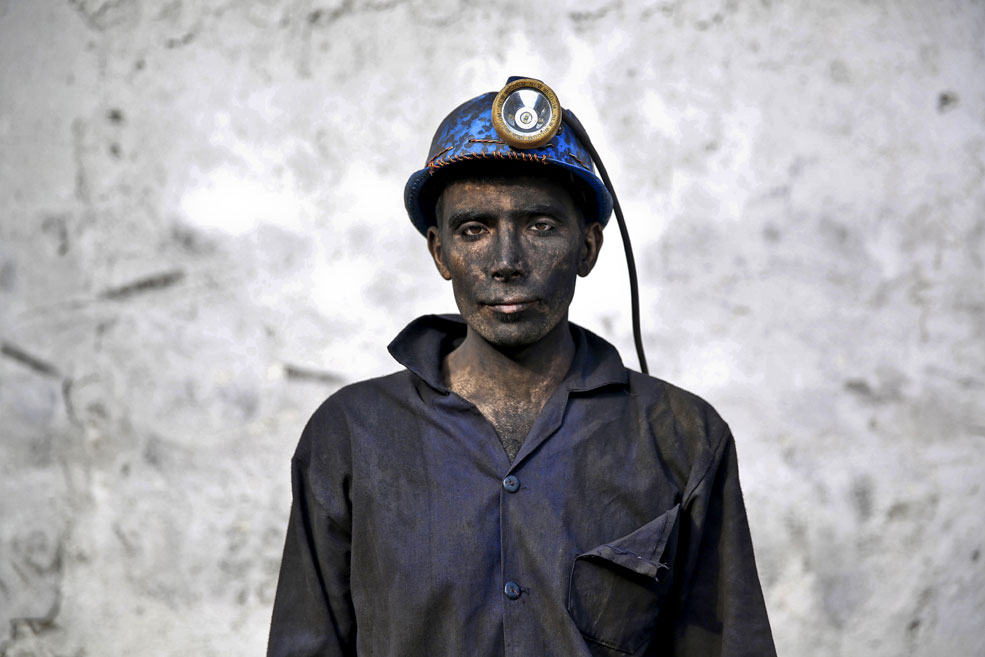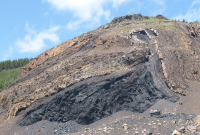Support strong Canadian climate journalism for 2025
The hand-painted sign on a bumpy road on the east side of Hanna speaks volumes.
"Hanna supports coal, cows, gas and oil," it says bluntly. The sign includes a circle with a line through it over the words "carbon tax."
The town of 2,700, 230 kilometres northeast of Calgary, like many rural Alberta communities, has largely lived off agriculture. But a large vein of thermal coal east of town led to the construction of the coal-fired Sheerness generating plant in the early 1980s and has provided welcome jobs and business in the region ever since.
People worry that economic boost is threatened by a new carbon levy and the provincial government's plan to shut down coal-fired power plant by 2030 and move exclusively to natural gas, wind, solar and hydro energy instead.
Alberta's climate-change plan includes an accelerated phase-out coal, which accounted for 55 per cent of electricity generation in the province in 2014.
"If it's a complete 100 per cent closure we're going to lose 200 full-time, well-paying jobs. That's about 7.5 per cent of our population," says Hanna Mayor Chris Warwick. "To put that into real life numbers, Edmonton losing 7.5 per cent is about 62,000 people — Calgary's around 90,000 — so it's a massive hit. These are well-paying jobs so it's not a good situation for us."
Warwick says some families are already looking at moving out of Hanna if they can find work elsewhere and he worries about a snowball effect.
"It's really hard right now even just to attract any investment into town. There's a lot of speculation that you're going to lose a bunch of your population. How can you get any business or convince industry to invest in our community? That's a big hurdle right now."
Alberta has pledged to work with Ottawa and communities affected by the phase out to explore options for the future, including transitioning to gas or hydro. The province has appointed a panel to meet with municipal leaders, workers and companies with the goal of easing the transition.
Still businesses are worried.
"We all have the entry-level jobs that everybody can get, but you can't take the professional jobs that make the $80,000-plus a year. That's a huge hole and I don't know how we're going to fill it," says Murray Moench, who owns Hanna Motor Products.
He says it's too soon to panic because wind turbines and solar power are not that effective and cost more.
Dale Crowle, who runs Hanna Building Supplies, says his customers are concerned.
"There's going to be a lot of job losses. The tax base will be tough, resale on housing will be tough. There's not a lot of new homes going up in Hanna," he says. "People are nervous. We see it every day here. It's going to be tough."
It's a different situation 450 kilometres to the southeast in Sparwood, B.C., where coal is still king.
"The companies come and go, but the coal remains. It's been the major provider here," explains Joe Jarina, who retired a few years ago after more than 40 years in the coal sector.
Jarina has worked at three different sites in the Sparwood-Elkford Valley area and under different owners but, like many people, he simply refers to the operators as "the company."
"Generally anybody you work for is the company", he says with a chuckle.
Sparwood, unlike Hanna, has metallurgical coal, which is almost entirely exported to Japan and Korea for steelmaking. That makes the product exempt from carbon tax.
Jarina comes from a coal mining family that has been in the area since the early 1900s. His father, an underground miner, was crushed by a rock when Jarina was 12 and spent the rest of his life in a wheelchair. But coal has remained a source of pride.
"It's got the community together through good times and bad. It's nice to live in a small town and the coal industry has provided jobs — good-paying jobs — and it's really helped the town."
Sparwood's mayor says an increase in world prices over the past few years has kept the mountain community humming. Teck Resources employs about 4,000 people at its five steelmaking coal operations in the area.
"We're very dependant. Coal is what we are — 90 per cent of the people who live in Sparwood are dependant on coal one way or another, whether it's directly with Teck or sub-trades, or contractors," says Mayor Cal McDougall. "As the price of coal goes, so goes Sparwood."
McDougall says even when prices for met coal were at rock bottom, the community managed to survive.
"Teck did a real good job in this downturn. They didn't panic. They didn't start laying a bunch of people off. They cut back on some of their contractors, which hurt. But the Teck guys, they kept them all."





Comments